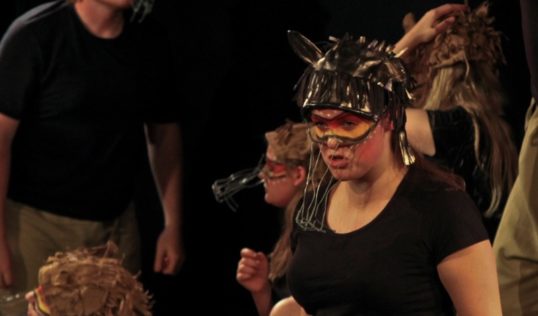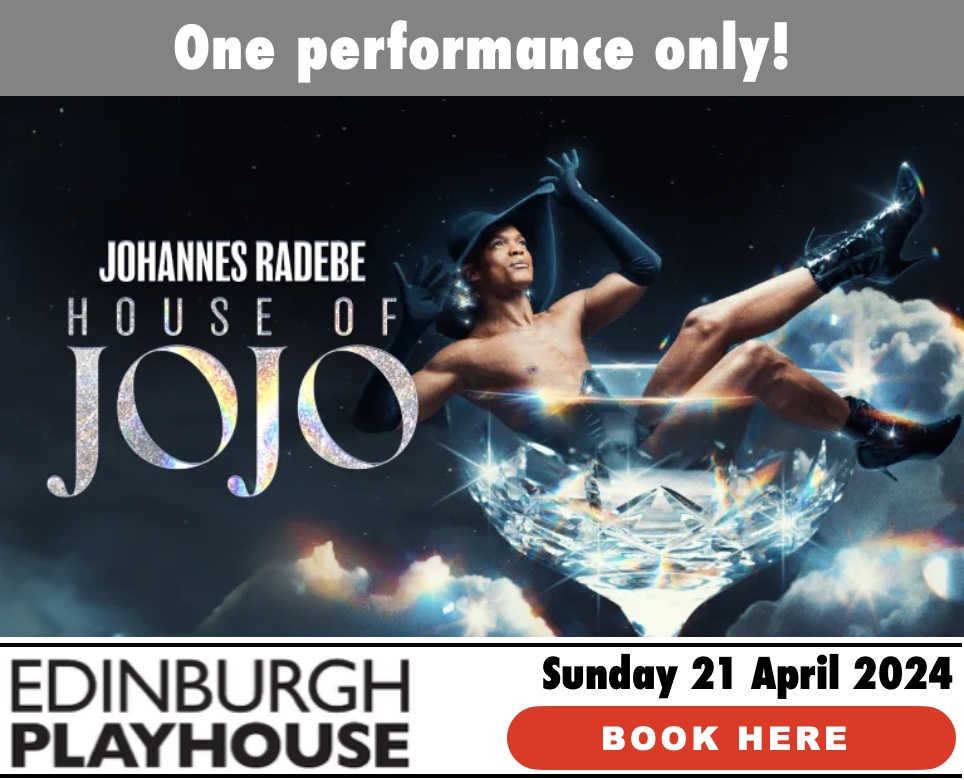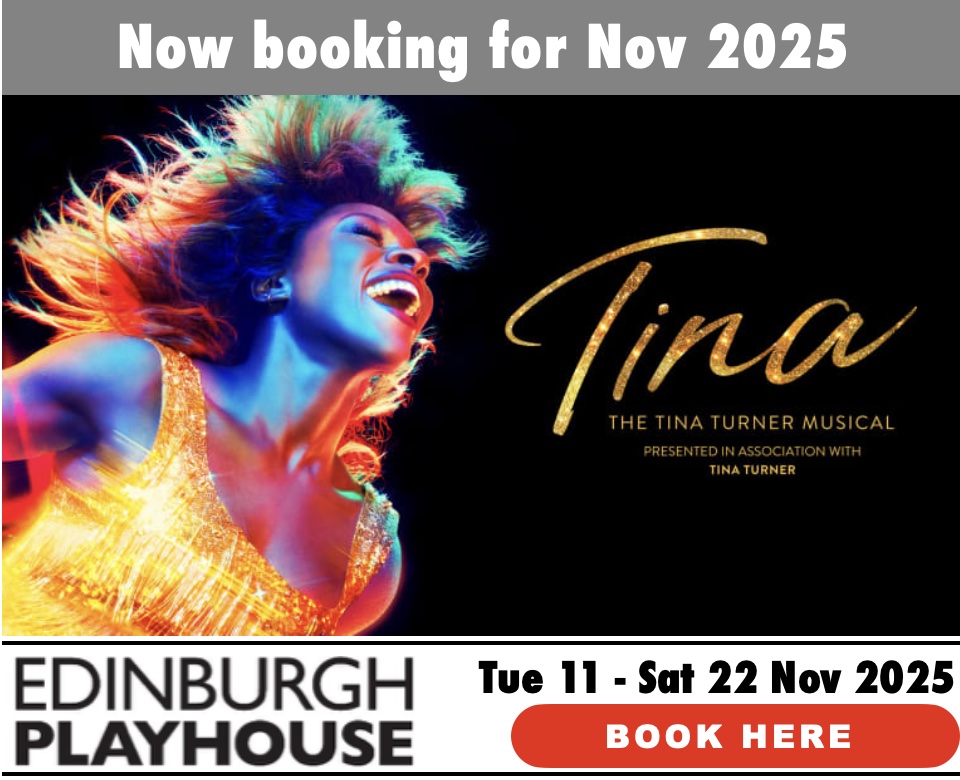Review – The Okavango Macbeth
✭✭✭✭✩ Big voices, intimate setting
Spotlites @ The Merchants’ Hall (Venue 278): Mon 12 – Sat 17 Aug 2013
Review by Thom Dibdin
Edinburgh Studio Opera return to Alexander McCall Smith and Tom Cunningham’s studio opera with a leaner, fitter production than the one which premiered two years ago at the Queens Hall.
The Okavango Macbeth is McCall Smith’s attempt to draw a parallel between the matrilineal baboons of the Okavango Delta in Botswana and Lady Macbeth’s murderously ambitious traits as depicted by Shakespeare.
The original production has had half an hour shaved off, although the structure and overall feel of the show is still very much the same. Indeed, South African director Nicholas Ellenbogen returns to direct and brings his excellent use of small props and well-observed physical gait to the opening scene where the animals of the Delta are seen living in harmony.
The chorus members lollop, strut and lumber around the stage, augmenting their plain outfits of black tee-shirts and khaki shorts with horns, ears or tails according to the animal they are portraying.
Of course Eden is soon lost – the animals blame the baboons – and a trio of primatologists come to observe the baboons.
With the primatologists providing a chorus, this allows the baboons to play out a tragedy of succession – even while the scientists are ever keen to point out that there are no tragedies in nature, only events.
Ben Ellis is in suitably large and lustrous voice as Duncan, the alpha male of the baboon troupe. Even more pleasing is Gemma Summerfield who sings Lady Macbeth. Her voice has a fullness of tone and warm, effortless timbre. There is little interaction between the two, indeed given Ellis’ voice he feels underused when Duncan is killed, as he must be.
Further tragedy is clearly on the cards
The problem for Lady Macbeth is that, according to baboon law, she can not have children with her husband but must mate with Duncan. Her solution is to get Macbeth to murder Duncan and replace him. Her husband will not just be king, but she will be his mate.
Ben Tambling makes his voice suitable underpowered as Macbeth – although he lets it fly later on when regret is called for. Listening to his voice alone, he is clearly no natural successor to Duncan. With a leopard prowling round and the baboon troupe clearly unhappy with Macbeth, further tragedy is clearly on the cards.
The loss of half an hour from the original production is largely for purposes of staging it in the Fringe, with a shorter time slot. It has also been simplified somewhat, partly due to the logistics of using a venue with a 15 minute turnaround time.
Strangely, it doesn’t feel as if anything is missing. The rather ponderous back-story is thankfully slimmed down and, if there is less change to create character, there is no feeling that anything is misunderstood or misrepresented in what remains.
The music accompaniment returns to composer Tom Cunningham’s original piano score – the orchestrations of two years ago were Robert McFall’s work for his Mr McFall’s Chamber. Musical director Stuart Hope’s contribution from keyboards really allows the voices to shine.
And it is in the singing and acting performances that this earns its stripes. There is never any doubt that these are animals of the Okavango Delta. But best of all, is hearing it in such an intimate setting, where no one has a to operate at the extremes of their ability.
Running time 1 hr 10 mins
Mon 12 – Sat 17 August 2013
Daily, 9.30pm.
Venue 278, Spotlites @ The Merchants’ Hall, 22 Hanover Street, EH2 2EP
Tickets from www.edfringe.com
Edinburgh Studio Opera website: www.edinburghstudioopera.org
A recording and vocal score of the Okavango Macbeth is available to buy on Amazon. Click the image for details.
ENDS



















